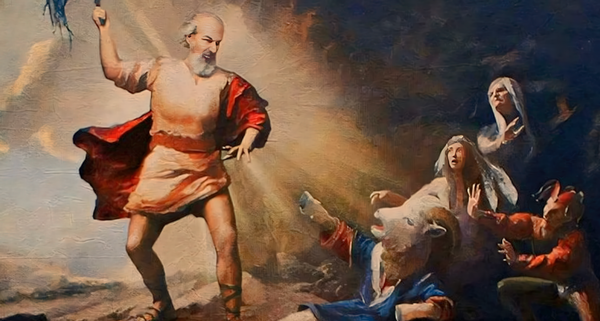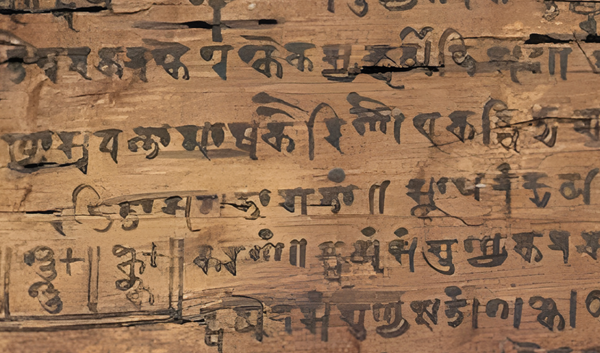One Have Been Made Two

From Book One of The Mahābhārata and for fathers everywhere.
“A son, the wise say, is the man himself born from himself; therefore a man will look upon the mother of his son as his own mother. The son born from his wife is as a man’s face in a mirror; and looking at him brings as much joy to a father as finding heaven brings to a saint. Men, burned by the sorrows of their hearts and sickly with disease, rejoice in their wives, as overheated people do in water. No matter how aggravated, a man should say no unkind things to his loving women, for in them he sees contingent his love, his joy, and his merit. Women are forever one’s sacred field of birth – are even the seers able to have children without one? A son stumbles and covered with dirt embraces his father – is there joy beyond that?
“And you, why do reject frowningly a son who of his own accord has come to you and fondly looks at you? Ants carry their own eggs and never break them – you, so wise in the Law, won’t keep your son? Neither clothes nor loving women nor water are so good to touch as the infant son you embrace. Of two-footed men the Brahmin is best; of four-footed beasts the cow is worthiest; of respected men the guru is first; and of all things to touch a son is the choicest. Embrace and touch your handsome son! There is no feeling on earth lovelier than to feel a son. For three full years I have borne this son, lord of kinds, for him to kill your grief. When I was giving birth to him a voice came from the sky saying, Oh Paurava ‘He shall be the offerer of a hundred Horse Sacrifices.’
“Do not men who had gone to another village take their sons lovingly on the laps and kiss their heads and feel happy? From the Vedas themselves, as you too know, the twiceborn recite these verses at the birth ceremony of their sons, ‘From each limb hast thou come forth, thou art born from my heart, thou art myself with the name of son, live thou a hundred autumns! For my nourishment lies with thee, and my eternal lineage – therefore live thou, my son, in all happiness for a hundred autumns!’ He has been born from your limbs, one man from another: look on my son as your other self, as your reflection seen in a clear pond. Just as the ahavaniya fire is carried away from the garhapatya hearth, so he is born from you, and you, being one, have been made two.




